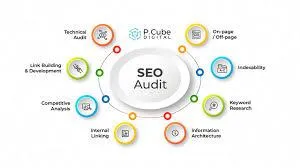We help home improvement businesses close more deals by integrating AI appointment systems.
Turn More Leads Into Booked Jobs—On Autopilot
We help home improvement businesses close more deals by integrating AI appointment systems.
Turn More Leads Into Booked Jobs—On Autopilot


Is This You?
You’re getting leads… but they’re not responding or converting.
You're wasting time chasing cold prospects and no-shows.
Your funnel feels disorganized—or worse, you don’t have one.
You're ready to grow, but your system can’t scale with you.
You shouldn’t lose business just because your follow-up isn’t fast enough.
Our Solution

We design, build, and integrate smart systems that take leads from first click to booked call—without needing you to chase anyone. Our approach combines AI, automation, and proven funnel strategy.
Here’s what we help you implement:
AI Appointment Setter – Instantly engages leads via SMS & email to book calls for you.
Lead Nurture Automation – Follow-up sequences with 5–7 touchpoints that keep leads warm.
Missed Call Text-Back – Never lose a lead due to a missed call again.
Funnel Strategy & Buildout – From landing pages to thank-you flows—we build the full lead journey.
Conversion Tracking & Optimization – Every step is tested and improved.

Our High-Impact Services

Funnel & Lead Flow Audit
We analyze your current system (or lack of one) to find gaps and missed opportunities.

Strategy Blueprint
You’ll receive a tailored plan for automation, nurturing, and scheduling success.

AI & Funnel Setup
We build and integrate everything inside your CRM (or ours), ready to launch.

Optimization & Support
We test, tweak, and scale as data rolls in—so you get better results over time.
Why Work With Us?

We specialize in funnel automation for home service businesses.

Proven AI systems that follow up, qualify, and schedule leads—24/7.

No DIY needed—we plan, build, and monitor everything for you.

Built inside platforms you already use—or custom CRMs.

Better ROI on ad spend—no leads wasted, more calls booked.

Ongoing support and optimization—we don't just set it and forget it.
testimonials

Julia Koehlers

They built my entire website from scratch—and it turned out way better than I expected. The design is clean, modern, and built to convert. The whole process was super smooth from start to finish. They really listened to what I needed, offered great suggestions, and delivered fast. My new site not only looks professional, but it’s also getting compliments from my clients—and more importantly, bringing in real leads. Couldn’t be happier with the results or the service!

Sean Kellenbarger

Mohan and the entire Innovative Advertising team has been great to work with. They integrated into our process quickly and have learned our business well. They have exceeded expectations and delivered on promises. The technology is easy to use and well managed. Highly recommend their services. Their expertise allows me to focus on my business and trust the results.

Jacob K.

The funnel and AI follow-up system they built made a huge difference for us. We don’t have to chase leads anymore—everything’s automated, well-structured, and runs smoothly. It’s not just about convenience either; our conversion rate has improved significantly. They understood our needs, tailored everything to fit our business, and delivered on time. Communication was easy, and they were quick to solve any issues. It’s been a game-changer for how we operate and scale.

Freddy Johnston

Before working with InnoAdvertising, my website was basically a low-quality billboard—pretty much useless. Now, it looks amazing, integrates perfectly with my CRM, and actually drives real results. Mohan and the team were incredibly helpful throughout the process. Their support is top-notch—quick to respond, solution-focused, and everything I needed was handled fast. I’m finally getting value from my website.

Patrick Apple

They took care of everything—website design, development, hosting, and even ongoing maintenance. What I appreciated most was how hands-off the process felt for me. They anticipated our needs, integrated everything seamlessly, and delivered a site that not only looks great but functions flawlessly with our systems. The experience gave me complete peace of mind, and now I trust them with all our digital needs. It’s rare to find a team this dependable and detail-oriented.

Allen Paut

I loved the entire campaign—from the ad creatives to the backend tech that powered it all. Everything felt modern, efficient, and tailored to our brand. They took the time to really understand our goals, and their execution was spot on. The communication was smooth, and their support team was always there when I had questions. Every part of the process felt easy and professional. Their support was excellent, and I’d recommend them 100% to anyone looking to grow their business online.
Have any Questions?
No hesitation, we can help you with a free Consultation

SEO Audit
SEO Audit
An SEO audit is like checking up on your website to see if it’s doing well on search engines like Google. It’s a bit like getting an oil change for your car, where you make sure everything is working smoothly.
During an SEO audit, you look at different parts of your website, such as how Google Adwords and Analytics are set up, the words on your site, any issues with your content, how people engage with you on social media, and how other websites link to yours.
Doing these audits regularly is important. It helps your website perform better in search results. The audit looks at the technical stuff, how other websites link to yours, and what’s on your pages to make sure everything works well, attracts visitors, and is easy to use.
How to do an SEO Audit?
1. Crawl your website
If you’ve made a bunch of updates to your website, ask search engines to “crawl” it. Crawling means they take a full snapshot of everything on your site, so when people search, they get directed to your latest content. If your site has changed a lot but search engines haven’t taken a new snapshot, people might not see your recent updates.
You can use SEO audit tools to crawl your site for you. It’s like a shortcut that saves time. Just enter your website’s URL, and the tool will go through your site, checking it like search engines do. After it’s done, the tool gives you a report showing different parts of your site.
This helps you find problems like repeated content, missing links, not enough words in your content, or too many redirects. These things can affect how well your site does on search engines. Once you know what’s wrong, you can make changes to fix it.
2. Check Search Engines for Indexing Problems
Besides using an SEO tool, you can also look for your website by typing in your main keywords. Count how many of your web pages show up in the search results and see if they’re near the top. This gives you an idea of how well your website is doing and if it’s showing up correctly.
When you search for your main website address, you can see how many pages are listed on search engines. If you can’t find a specific page, try searching for its exact web address.
If it doesn’t show up, there might be an issue with your site’s meta robots tag. This tag tells search engines how to handle your page for listing. If it’s broken or not used correctly, search engines might not list your page.
3. Check If Your Website Shows Up First
When you’re working on your SEO plan, remember that you’re not the only one making changes.
Your competitors are doing things too. Search engine rankings compare how well websites are doing in a specific industry. You can’t be sure your site will rank high for all your keywords, but following best practices helps.
Use your main words to search for your website and see where it shows up. Your goal is to get on the first page of the search results. If your site is on later pages, fewer people are likely to click on it.
Being on the first page means more people see your website, bringing in new visitors and customers.
4. Check Your Website's Stuff
Doing an on-page SEO check helps you see if your website is set up and working well. This means looking at all your website’s content and the behind-the-scenes code. When your site is optimized, it provides the info search engines need to understand and list your site correctly.
Your content should also be what users want to see, making them interested and helping search engines see your page as an authoritative one. This involves smartly using important keywords in your high-quality content on pages and posts.
Even though keywords aren’t as important as before, they still matter in SEO. What’s more crucial now is how relevant your content is to what users are searching for. So, not only should you place keywords smartly, but the stuff around those keywords should also be interesting, easy to read, and helpful for readers.
Checking your on-page SEO also ensures your website runs smoothly. This means providing a great user experience. Make sure your site is easy to navigate and loads fast. If you have ads on your site, make sure they don’t mess with how your site works, or you might lose more than you gain from the ads. Also, test your site on phones and other mobile devices. If it’s not as easy to use on a mobile device as it is on a computer, you need to make some big changes.
5. Watch Out for Same Stuff on Your Website
Having the same content in more than one place can hurt your SEO. If search engines see that your site has content similar to another site, they might penalize you.
It’s crucial to make sure your content is original for it to be trustworthy and relevant. Sometimes, companies don’t realize they have duplicate content, so it’s essential to check your whole website. If you find any duplicates, either get rid of them or change them up.
Duplication doesn’t just mean copying from other websites. If search engines find the same content on different pages of your own site, it looks like you’re trying to fill up your site without offering real information.
Avoid just copying or repeating stuff to fill space. Instead, spend time creating original and interesting content across your website. This way, search engines will notice your efforts and rank your site higher in search results.
How often do you conduct an SEO Audit?
How often you should do an SEO audit depends on the size of your website and how much it changes. If your website is big and you make a lot of updates, it’s good to do an audit more often, like every month or every three months. For a smaller website, once every six months or even once a year might be enough.
If you’ve made major changes to your site, like adding an SSL certification, it’s smart to do an SEO audit to check that everything is working as it should.
But if your website is brand new, doing an audit might not be very useful. You could check to make sure the technical stuff is set up right, but you probably won’t have enough data for a full SEO audit at that point.
Performing an SEO audit is quite technical and complicated. It may not sound like the most exciting activity in the world if you are not a person who is very enthusiastic about technology, but it can actually boost your site’s performance and revenue in ways that you may never imagine if done correctly.
Frequently Asked Questions
What does InnoAdvertising do?
We help home improvement businesses—like remodelers, roofers, landscapers, and kitchen contractors—generate qualified leads and booked appointments through paid advertising. Our proven systems are designed to deliver real results, not just clicks.
Who do you work with?
We specialize in working with small to mid-sized home improvement companies in the U.S. If you offer a service to homeowners (e.g., roofing, remodeling, landscaping), we can help you get more clients consistently.
What platforms do you advertise on?
We primarily use Facebook and Instagram Ads because they allow us to target homeowners very precisely. Depending on your goals, we may also use Google Ads or YouTube Ads to complement your campaigns.
How are leads handled after they come in?
We don’t just generate leads—we help turn them into appointments. All leads are routed to your CRM or our built-in system, where we help qualify, follow up, and book them into your calendar using automation or human appointment setters.
What makes you different from other marketing agencies?
We don’t believe in generic marketing. Everything we do is based on industry-specific systems built for the home improvement niche. You get transparent reporting, no fluff, and campaigns that are focused on ROI.
Do you offer contracts?
We work on a month-to-month basis. We believe in earning your business, not locking you into long-term contracts. That said, we recommend giving campaigns at least 60-90 days to gain traction and see full results.
How quickly can I expect results?
Most clients start seeing qualified leads within the first 1–2 weeks after launch. However, full ramp-up and optimization usually take 4–6 weeks for the best performance.
Do you provide a dashboard or reports?
Yes! Every client gets access to a real-time performance dashboard so you can track leads, appointments, and campaign ROI. You’ll also get regular check-ins and updates from our team.
How do we get started?
Simple. Book a free strategy call with our team. We’ll learn about your business, show you what’s working in your industry, and outline how we can help. If it’s a good fit, we’ll take it from there.
Can you help if I’ve tried ads before and they didn’t work?
Absolutely. Many of our clients came to us after running ads with little to no success. The difference is in the strategy, targeting, creative, and follow-up systems. We don’t just “run ads”—we build campaigns designed to convert leads into real business. If you’ve been burned before, we’ll show you exactly what went wrong and how we do it differently.
Copyright © 2025 by InnoAdvertising.com. All rights reserved.

